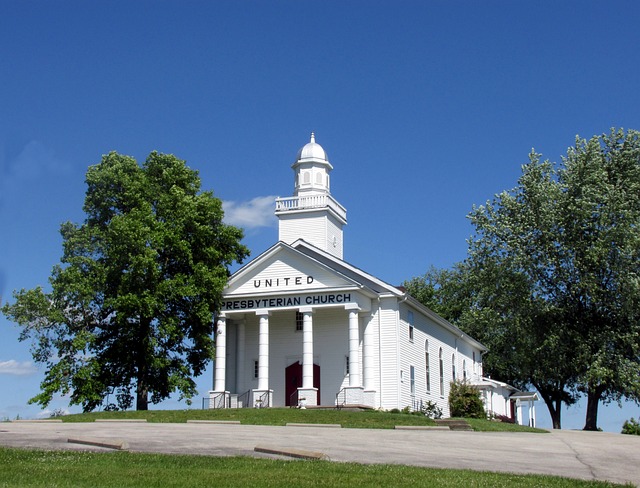Presbyterianism is a branch of Protestant Christianity that originated in Scotland during the 16th century. It is characterized by its adherence to a system of church governance led by elders, known as presbyters. The basic beliefs of Presbyterianism include the sovereignty of God, the authority of Scripture, salvation by grace through faith, the priesthood of all believers, and the importance of the sacraments.
Table of Contents
The Doctrine of Predestination in Presbyterianism
Presbyterianism is a branch of Protestant Christianity that has its roots in the Reformation movement of the 16th century. It is characterized by its adherence to a set of basic beliefs and principles that guide its followers in their faith. One of the key doctrines of Presbyterianism is the concept of predestination.
Predestination is the belief that God has already determined the fate of every individual before they are even born. According to this doctrine, God has chosen some people to be saved and others to be damned. This idea can be quite controversial and difficult to understand, but it is a fundamental aspect of Presbyterian theology.
The concept of predestination is based on the teachings of John Calvin, a prominent figure in the Reformation movement. Calvin believed that God’s sovereignty and omnipotence meant that he had complete control over the destiny of every person. He argued that God’s choice to save or damn individuals was not based on their actions or merits, but solely on his own will.
This doctrine can be challenging for many people to accept, as it seems to contradict the idea of free will. If God has already determined our fate, then what is the point of our actions and choices? However, Presbyterians believe that while God has predestined the ultimate outcome, he still allows individuals to make choices and act freely within the boundaries of his divine plan.
Presbyterians also believe that predestination should not be a cause for despair or fatalism. Instead, it should be a source of comfort and assurance. Knowing that God has already chosen them for salvation, believers can have confidence in their faith and trust in God’s grace. This belief in predestination is seen as a reflection of God’s love and mercy, rather than a harsh judgment.
In Presbyterian theology, predestination is closely linked to the concept of election. Election refers to God’s choosing of certain individuals to be saved. Presbyterians believe that God’s election is not based on any human merit or worthiness, but solely on his grace. It is a gift that cannot be earned or deserved.
This belief in predestination and election has important implications for the way Presbyterians understand salvation. They believe that salvation is not something that can be achieved through good works or personal effort. Instead, it is a gift that is freely given by God to those whom he has chosen.
While the doctrine of predestination may be difficult to fully comprehend, it is an integral part of Presbyterian theology. It shapes the way Presbyterians understand God’s sovereignty, human free will, and the nature of salvation. Despite its controversial nature, many Presbyterians find comfort and assurance in the belief that their ultimate destiny is in God’s hands.
The Role of Scripture in Presbyterian Beliefs

Presbyterianism is a branch of Protestant Christianity that has its roots in the Reformation movement of the 16th century. It is characterized by its adherence to the principles of governance by elders and its emphasis on the authority of Scripture. In this article, we will explore the role of Scripture in Presbyterian beliefs.
At the heart of Presbyterianism is a deep reverence for the Bible. Presbyterians believe that the Bible is the inspired word of God and the ultimate authority in matters of faith and practice. They view Scripture as a guidebook for life, providing wisdom and guidance for every aspect of human existence.
Presbyterians believe that the Bible contains all that is necessary for salvation and godly living. They hold that it is the infallible and inerrant word of God, meaning that it is without error or contradiction. This belief stems from the conviction that God, through the Holy Spirit, guided the authors of the Bible in their writing, ensuring that what they wrote was true and reliable.
The authority of Scripture is central to Presbyterian worship and teaching. In Presbyterian churches, the Bible is read aloud during worship services, and sermons are based on the teachings and principles found in Scripture. The preaching of the Word is considered a means of grace, through which God speaks to His people and transforms their lives.
Presbyterians also believe in the importance of interpreting Scripture correctly. They recognize that the Bible was written in a specific historical and cultural context and that understanding this context is crucial for interpreting its message accurately. They employ various methods of biblical interpretation, including historical, literary, and theological approaches, to gain a deeper understanding of the text.
Presbyterians also value the role of the Holy Spirit in interpreting Scripture. They believe that the Holy Spirit illuminates the meaning of the text and guides believers in their understanding of God’s word. This reliance on the Holy Spirit ensures that interpretation is not solely based on human reasoning but is grounded in the guidance of God.
Presbyterians believe that the Bible is not just a historical document but a living and active word that continues to speak to believers today. They believe that God’s word is relevant and applicable to every generation and that it has the power to transform lives and bring about spiritual growth.
In summary, the role of Scripture in Presbyterian beliefs is foundational. Presbyterians view the Bible as the inspired and authoritative word of God, infallible and without error. They believe that Scripture contains all that is necessary for salvation and godly living and that it should be interpreted correctly with the guidance of the Holy Spirit. The Bible is central to Presbyterian worship and teaching, and its message is seen as relevant and transformative for believers today.
Presbyterian Views on Worship and Sacraments
Presbyterian Views on Worship and Sacraments
When it comes to worship and sacraments, Presbyterianism has its own unique beliefs and practices. These beliefs are rooted in the Reformed tradition and are shaped by the teachings of John Calvin and other influential theologians. In this article, we will explore the basic beliefs of Presbyterians regarding worship and sacraments.
Presbyterians believe that worship is a central part of the Christian faith. They view it as a time of communal gathering where believers come together to praise and honor God. Worship services in Presbyterian churches are typically characterized by a sense of reverence and order. The liturgy is carefully planned and follows a structured format, which includes prayers, hymns, Scripture readings, and a sermon.
One of the distinctive features of Presbyterian worship is the emphasis on the preaching of the Word. Presbyterians believe that the Bible is the inspired Word of God and that it should be at the center of their worship. The sermon, therefore, plays a crucial role in Presbyterian worship services. It is seen as an opportunity for the pastor to expound on the Scriptures and provide guidance and instruction to the congregation.
In addition to preaching, Presbyterians also value the sacraments as important acts of worship. The two sacraments recognized by Presbyterians are baptism and the Lord’s Supper (also known as communion). Baptism is seen as a sign and seal of God’s covenant with His people. It symbolizes the washing away of sin and the believer’s identification with Christ’s death and resurrection. In Presbyterian churches, both infants and adults can be baptized, although the mode of baptism may vary (sprinkling, pouring, or immersion).
The Lord’s Supper, on the other hand, is a commemoration of Christ’s sacrifice on the cross. Presbyterians believe that in partaking of the bread and wine, they are spiritually nourished and united with Christ and with one another. The Lord’s Supper is typically celebrated during worship services, and it is open to all baptized believers who profess faith in Jesus Christ.
Presbyterians also believe in the priesthood of all believers. This means that every member of the congregation has a role to play in worship. While the pastor may lead the service, the participation of the congregation is encouraged through responsive readings, prayers, and the singing of hymns. Presbyterians believe that worship is not a passive experience but an active engagement with God and with one another.
Another important aspect of Presbyterian worship is the use of music. Hymns and psalms are an integral part of worship services, and they are chosen carefully to reflect the theological beliefs of the Presbyterian tradition. The singing of hymns is seen as a way to express praise and adoration to God and to unite the congregation in worship.
In conclusion, Presbyterianism has its own distinct views on worship and sacraments. Presbyterians believe that worship is a central part of the Christian faith and that it should be characterized by reverence, order, and the preaching of the Word. They value the sacraments of baptism and the Lord’s Supper as important acts of worship, and they believe in the active participation of the congregation in worship. Music also plays a significant role in Presbyterian worship, as it is seen as a way to express praise and unite believers. Overall, Presbyterian worship is a time of communal gathering, where believers come together to honor and glorify God.
Presbyterian Church Government and Structure
Presbyterian Church Government and Structure
Presbyterianism is a branch of Protestant Christianity that is known for its unique system of church government and structure. In this article, we will explore the basic beliefs of Presbyterianism and how they are reflected in the way the church is organized and governed.
At the heart of Presbyterianism is the belief in the sovereignty of God. Presbyterians believe that God is the ultimate authority in all matters of faith and life. This belief is reflected in the way the church is governed, with decisions being made by a group of elected leaders called elders.
The Presbyterian form of church government is known as a representative democracy. This means that decisions are made by a representative body of elders, rather than by a single individual or a hierarchical structure. This system is based on the belief that all believers are equal before God and have a role to play in the decision-making process.
The highest governing body in the Presbyterian Church is called the General Assembly. This assembly is made up of representatives from local churches, known as presbyteries. Each presbytery is made up of ministers and elders from the local congregations. The General Assembly meets annually to discuss and make decisions on matters of doctrine, worship, and church policy.
One of the key principles of Presbyterianism is the belief in the priesthood of all believers. This means that every member of the church has a role to play in the ministry and mission of the church. In Presbyterian churches, this belief is reflected in the way that decisions are made and leadership is shared among the members.
Presbyterian churches are led by a group of elders, who are elected by the congregation. These elders are responsible for the spiritual oversight and governance of the church. They work together with the minister, who is also an elder, to provide leadership and guidance to the congregation.
In addition to the elders, Presbyterian churches also have deacons. Deacons are responsible for the practical and compassionate ministries of the church, such as caring for the sick and needy. They work alongside the elders to ensure that the physical and spiritual needs of the congregation are met.
Presbyterian churches also have a system of courts, which serve as a means of accountability and oversight. These courts, known as sessions, presbyteries, and synods, provide a structure for resolving disputes and making decisions at various levels of the church. This system ensures that decisions are made in a fair and transparent manner, and that the church remains faithful to its beliefs and principles.
In conclusion, Presbyterianism is a branch of Protestant Christianity that is characterized by its unique system of church government and structure. The belief in the sovereignty of God and the priesthood of all believers are central to Presbyterian beliefs and are reflected in the way the church is organized and governed. Through a representative democracy, Presbyterian churches ensure that decisions are made collectively by a body of elected leaders, and that all members have a role to play in the ministry and mission of the church. The system of courts provides accountability and oversight, ensuring that the church remains faithful to its beliefs and principles.
Conclusion
Presbyterianism is a branch of Protestant Christianity that emphasizes the sovereignty of God, the authority of Scripture, and the importance of the community of believers. It holds to the belief in the Trinity, the deity of Jesus Christ, salvation through faith in Christ alone, and the importance of living a life of obedience to God’s commandments. Presbyterianism also places a strong emphasis on the governance of the church by elected elders and the practice of sacraments, particularly baptism and the Lord’s Supper. Overall, Presbyterianism’s basic beliefs revolve around the centrality of God, the authority of Scripture, and the importance of community and worship.


